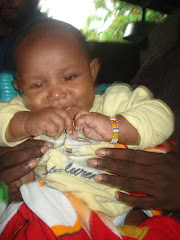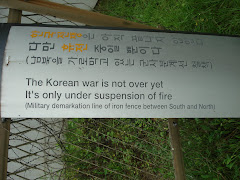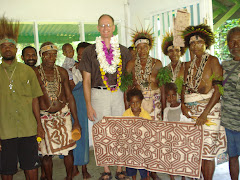Wednesday, April 14, 2010
A Sacred Rhythm
One of the realities of my life is the intermittent access to the internet! I've been in Papua New Guinea for all of March, participating the the Ministers' Meeting and then on to New Zealand for two weeks, conducting a Holy Week mission at a parish and a church school in Cambridge, NZ. Easter Week I was feted and fed beautifully, but often having to give a short talk or presentation about our life in SSF; it culminated with a Quiet Day on Saturday of Easter Week. I flew to Sydney on Sunday and came to Stroud on Monday.
I think my favorite part of my work is getting to stay around after the other visitors go home. Life goes back to normal for the 16 novices and brothers in the friary where I was staying. In Papua New Guinea it meant no more chicken and fish and meat at every meal. We ate piles of bananas--boiled, baked, roasted, fried and raw, and lots of crook neck squash, breakfast, lunch and dinner. Many days nothing else, and we were happy to eat them. Their days are broken up into "periods" and the afternoon is always "work." What this meant for us during my visit was clambering all over a tree which fell in a heavy rain storm, hacking at it with machetes and hand saws. I am a danger to myself and others with a meter long knife, so I contented myself with hauling the branches away. I cursed my choice when I began to get bitten by myriad ferocious ants in very private places! We all suffered so I couldn't quit. The next day the ants had decamped for some other tree in the forest and we labored in tranquility. Plunging into a waterfall after such heavy work is heavenly--soothing to skin pulped by ants, mosquitoes and thorns.
I taught two short courses for them, one on prayer, and another on how to tell your spiritual autobiography. We had some really moving evenings as we began to tell each other how God has moved in our lives. What impressed me most was the way so many of us have experienced God's Spirit working in our lives. Our stories are testimonials to the working of God in the lives of ordinary people. I found the rhythm of the days very restorative: up at 5:30, praying with the brothers by 6:00. Breakfast at 8:00 then classes at 9:00. Midday prayer and lunch, then "solitude" which always meant "nap" for me! Then the hard labor under the tropical sun after which I often went running. Evening prayer at 5:00 so we'd have enough daylight to read by. Dinner then the evening class. Drop dead in bed by 9:30. You think I am crazy to say it is restorative! But the pattern of prayer, study and work, living in community, even bathing together in the river and eating foods we gather from the garden feels like pure gift. A tremendous amount of work gets done even though we only do manual labor about 3.5 hours a day. Bees work just about 5 hours a day...so why do I sometimes put in long days and nights over a hot keyboard? I am trying to keep to the balance.
One of the things the folks in PNG take really seriously is welcoming visitors. When the Ministers arrived, it was huge: a crowd of men and women singing, giving us flowers. But when I went to visit places for lunch or drop by for tea, there was always an elaborate (to my sensibilities at least) welcome. I tried to get the brothers to ask the people not to do this, just let me come by and visit, I whined. They were adamant. Never. This is about honoring our customs and it is who we are as a people. If we didn't welcome you we would feel ashamed. So I had to learn again the pleasure of being welcomed and of eating from every dish offered to me. Lovely bananas! Again!
In New Zealand, I stayed with the three brothers at Hamilton, two of whom I know and love. I met our new novice there, Br. Simone. He was born in Italy not so long ago, so we had some very interesting intercultural, inter-generational conversations, with me high from the Papua New Guinea rain forest experience, but from America, and curious about New Zealand. He and I shared the preaching load during Holy Week. He had never preached before, but by Easter Sunday he'd given 13 sermons! Really good ones too. But it wasn't all work and sermonizing. We went with a friend to Rotorua and gaped at the geysers and boiling mud. Then we went to a spa and jumped in steamy pools of mineral water--the best way to get psyched up for the Triduum I've found yet! Easter week, one day we went spelunking in the Waitamo Caves. Like me, Simone enjoys running, and he curbed his pace to adjust to mine, and we had some really lovely runs. All of this framed by the daily office and friary life. And a richer diet. The brothers hosted a pizza party for friends to come meet me (It was the only night it rained my whole stay). Easter is in early autumn, so we enjoyed corn on the cob, fresh tomatoes, fresh broccoli and crookneck squash (but only at dinner). By the time I left Simone was truly a brother to me!
Over the years the brothers have done extraordinary ministry in New Zealand, and for many years there were several more brothers in the country. Franciscans are very popular, and we enjoy some really good relationships with church folk there. The Archbishop comes by for coffee and to join in the prayers. He organized a luncheon to give some clergy in the diocese who might not otherwise have a chance to meet and talk with me. We spoke about the environment, prayer and community life: we shared some very interesting perspectives.
During the Quiet Day which I conducted for about 21 people my last day in New Zealand, I spoke about being interconnected. St. Francis talks about these relationships in his Canticle of the Creatures: Brother Sun, Sister Moon. Everything is kin to us, we all come from the same source, God. The reality of being interconnected and the invitation to live this as fully and responsibly as possible is part of the core Franciscan message. The ins and outs of relationships and daily activities is the sacred rhythm of our lives.
I think my favorite part of my work is getting to stay around after the other visitors go home. Life goes back to normal for the 16 novices and brothers in the friary where I was staying. In Papua New Guinea it meant no more chicken and fish and meat at every meal. We ate piles of bananas--boiled, baked, roasted, fried and raw, and lots of crook neck squash, breakfast, lunch and dinner. Many days nothing else, and we were happy to eat them. Their days are broken up into "periods" and the afternoon is always "work." What this meant for us during my visit was clambering all over a tree which fell in a heavy rain storm, hacking at it with machetes and hand saws. I am a danger to myself and others with a meter long knife, so I contented myself with hauling the branches away. I cursed my choice when I began to get bitten by myriad ferocious ants in very private places! We all suffered so I couldn't quit. The next day the ants had decamped for some other tree in the forest and we labored in tranquility. Plunging into a waterfall after such heavy work is heavenly--soothing to skin pulped by ants, mosquitoes and thorns.
I taught two short courses for them, one on prayer, and another on how to tell your spiritual autobiography. We had some really moving evenings as we began to tell each other how God has moved in our lives. What impressed me most was the way so many of us have experienced God's Spirit working in our lives. Our stories are testimonials to the working of God in the lives of ordinary people. I found the rhythm of the days very restorative: up at 5:30, praying with the brothers by 6:00. Breakfast at 8:00 then classes at 9:00. Midday prayer and lunch, then "solitude" which always meant "nap" for me! Then the hard labor under the tropical sun after which I often went running. Evening prayer at 5:00 so we'd have enough daylight to read by. Dinner then the evening class. Drop dead in bed by 9:30. You think I am crazy to say it is restorative! But the pattern of prayer, study and work, living in community, even bathing together in the river and eating foods we gather from the garden feels like pure gift. A tremendous amount of work gets done even though we only do manual labor about 3.5 hours a day. Bees work just about 5 hours a day...so why do I sometimes put in long days and nights over a hot keyboard? I am trying to keep to the balance.
One of the things the folks in PNG take really seriously is welcoming visitors. When the Ministers arrived, it was huge: a crowd of men and women singing, giving us flowers. But when I went to visit places for lunch or drop by for tea, there was always an elaborate (to my sensibilities at least) welcome. I tried to get the brothers to ask the people not to do this, just let me come by and visit, I whined. They were adamant. Never. This is about honoring our customs and it is who we are as a people. If we didn't welcome you we would feel ashamed. So I had to learn again the pleasure of being welcomed and of eating from every dish offered to me. Lovely bananas! Again!
In New Zealand, I stayed with the three brothers at Hamilton, two of whom I know and love. I met our new novice there, Br. Simone. He was born in Italy not so long ago, so we had some very interesting intercultural, inter-generational conversations, with me high from the Papua New Guinea rain forest experience, but from America, and curious about New Zealand. He and I shared the preaching load during Holy Week. He had never preached before, but by Easter Sunday he'd given 13 sermons! Really good ones too. But it wasn't all work and sermonizing. We went with a friend to Rotorua and gaped at the geysers and boiling mud. Then we went to a spa and jumped in steamy pools of mineral water--the best way to get psyched up for the Triduum I've found yet! Easter week, one day we went spelunking in the Waitamo Caves. Like me, Simone enjoys running, and he curbed his pace to adjust to mine, and we had some really lovely runs. All of this framed by the daily office and friary life. And a richer diet. The brothers hosted a pizza party for friends to come meet me (It was the only night it rained my whole stay). Easter is in early autumn, so we enjoyed corn on the cob, fresh tomatoes, fresh broccoli and crookneck squash (but only at dinner). By the time I left Simone was truly a brother to me!
Over the years the brothers have done extraordinary ministry in New Zealand, and for many years there were several more brothers in the country. Franciscans are very popular, and we enjoy some really good relationships with church folk there. The Archbishop comes by for coffee and to join in the prayers. He organized a luncheon to give some clergy in the diocese who might not otherwise have a chance to meet and talk with me. We spoke about the environment, prayer and community life: we shared some very interesting perspectives.
During the Quiet Day which I conducted for about 21 people my last day in New Zealand, I spoke about being interconnected. St. Francis talks about these relationships in his Canticle of the Creatures: Brother Sun, Sister Moon. Everything is kin to us, we all come from the same source, God. The reality of being interconnected and the invitation to live this as fully and responsibly as possible is part of the core Franciscan message. The ins and outs of relationships and daily activities is the sacred rhythm of our lives.
Subscribe to:
Post Comments (Atom)






No comments:
Post a Comment